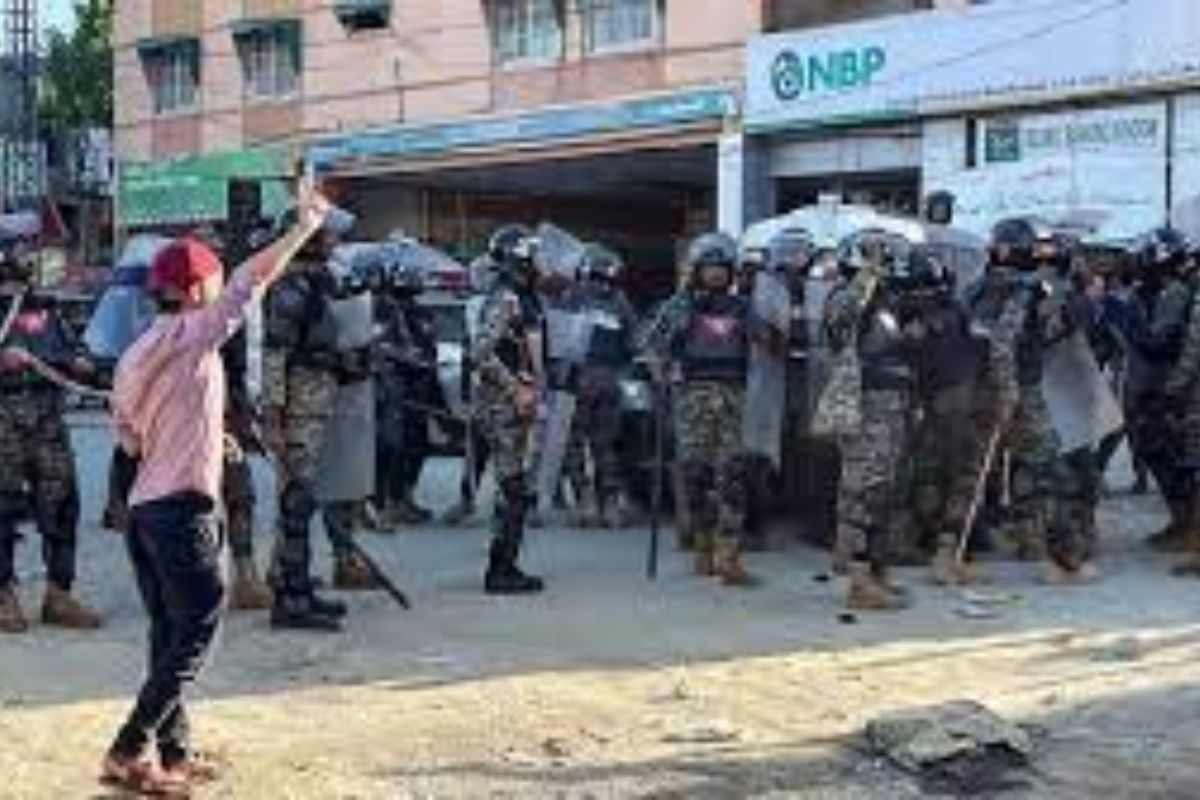
An alliance of civil rights group Jammu Kashmir Joint Awami Action Committee (JAAC) on Tuesday called off a protest march a day after Prime Minister Shehbaz Sharif approved a grant of 24 billion rupees

NEW DELHI: While Pakistan actively lobbies internationally against alleged human rights violations by India in Kashmir, it simultaneously ignores the issues within its own administered territory, Pakistan-occupied Kashmir (PoK), also known as ‘Azad Kashmir’. The recent protests on the streets of PoK are a stark illustration of this dichotomy.
An alliance of civil rights group Jammu Kashmir Joint Awami Action Committee (JAAC) on Tuesday called off a protest march a day after Prime Minister Shehbaz Sharif approved a grant of 24 billion rupees ($86 million) to help meet most of their demands, which included subsidies on flour and electricity prices.
Background of the Protests:
The protests in PoK have been fueled by economic distress and political discontent. Residents have taken to the streets to voice their frustration over the rising costs of basic necessities such as wheat flour and electricity. The economic crisis in Pakistan has led to high inflation, affecting the daily lives of people in PoK.
In Pakistan-occupied Kashmir, a severe police crackdown took place. Reports indicate that multiple forces, including the Frontier Corps, Rangers, and the Quick Response Force from Punjab Province in Pakistan, confront the local populace. The situation escalated last year when Pakistan hiked electricity tariffs as part of its efforts to secure a loan from the International Monetary Fund (IMF). The country has been criticised for mismanaging funds, with a significant portion reportedly allocated to its disproportionately large military.
Allegations of Discrimination:
There are allegations from PoK leaders of discrimination by the Pakistani government in the distribution of resources. For instance, there have been complaints about not receiving a fair share of electricity from the hydropower produced in the region. This has added to the sense of alienation among the people of PoK, because the region boasts plentiful electricity resources, including several hydroelectric power stations. Consequently, the Kashmiri people felt it was unreasonable to be forced to subsidize Pakistan’s financial requirements.
Impact of India-Pakistan Relations:
The trade relations between India and Pakistan have also impacted PoK, especially after the increase in customs duty by 200 % by India on Pakistani products following the Pulwama terror attack and the subsequent halt of trade by Pakistan after the annulment of Article 370 from Jammu and Kashmir by India.
Current Situation:
The protests have seen a significant turnout, with clashes reported between protesters and security forces. The situation has escalated to the point where a police officer was reported dead, and many others injured. The use of force by the police and the imposition of curfews have only intensified the situation. Two children died and Many political figures of Pok and students activists arrested by the forces.
International Lobbying vs. Domestic Challenges:
While Pakistan continues to lobby internationally against what it perceives as human rights violations in Indian-administered Kashmir, the protests in PoK serve as a stark reminder of the challenges within its own borders.